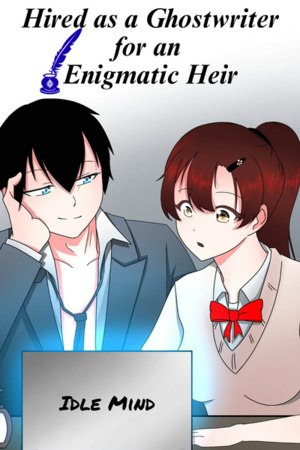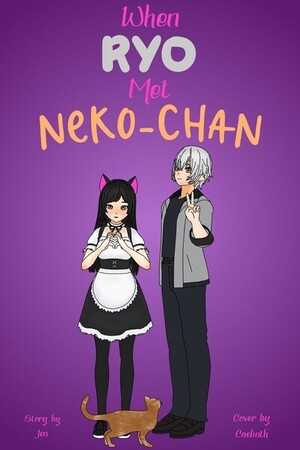Chapter 1:
A moment captured in time
A blind faith
„Alright, now try not to move. It’s a bit of a tricky process, so I hope it will turn out well the first time.”
The entire Nashir family stared at me and the camera with a reverent respect, as if I were performing some sacred ritual. It made me a bit nervous. I’ve always been anxious in front of large groups of people, and now there were quite a few of them. There was the father of the family, Tiltek, the mother Shahíra, the elder Atamurm, and five children. Three sons and two daughters. I hadn’t yet had the chance to memorize all their names. The only ones I really remembered were little Zufia, who now looked at me eagerly with a smile on her lips, and the eldest son Djashír, who maintained a dignified and serious expression, as befitted the heir to the chief.
“Go ahead, Olgrin-ru,” called Tiltek, nodding encouragingly at me. I still wasn’t used to that they were addressing me with the suffix ‘ru’. It means something like ‘foreigner’, but in a respectful sense. I was still surprised at how much the Makaghátians value foreigners and travellers.
Just as I was about to flip open the camera’s shutter and begin photographing, I realized that perhaps half of them were still staring at me instead on the camera. I nervously laughed and explained the instructions again. When they all finally focused on the small, covered opening, I nodded again and revealed the lens.
It was as if time itself had stopped. The only thing that moved was the hand of my pocket watch, hungrily eating away one second after another. When I had counted fifteen ticks, I covered the lens.
“It’s all done, the rest is up to me now,” I announced as I took the exposed plate out of camera. The youngest children rushed at me, nearly knocking the photograph from my hands.
“Show us, show us, Olgrin-ru!”
“It’s not finished yet,” I laughed. “Just a moment. And please, don’t interrupt me while I’m in the tent.” I pointed to my portable darkroom. “Otherwise, it could ruin everything.”
Mother Shahíra took the disappointed children away, and I plunged into the darkness of the tent. Immediately, the strong smell of chemicals hit me, making my head spin. It was also terribly stuffy in there. As soon as I stepped inside, I already looked forward to leaving. The process of developing photographs always fascinated me, it felt like magic as the image appeared under my hands, something that had just moments ago been reality. However, under these conditions, it was quite an unpleasant task.
Blindly, I dipped the plate into a developer liquid. Then I just had to wait. It didn’t take long at all, but in that moment, it felt like an eternity. I tried to keep myself busy with my thoughts so I wouldn’t have to focus on the stifling heat.
I had spent only a few days here, and I already felt at home. In the dark, I smiled. Yes, the Makaghátians were truly kind and friendly people. I had known since childhood that I wanted to visit Huur – the central continent. I studied Huuristic studies and set off to explore and document their cultures. First, I headed to Makaghát. A university friend, who had worked there for quite some time, arranged my stay here, in one of the villages in the Djapar hills. It doesn’t have an official name, but most locals call it Ifara id Ikar (shortened to just Ifara), meaning something like “near Mount Ifara,” which is the highest hill in the region.
I was shocked when I realized I'd completely lost track of time. I hoped I didn’t mess it up; I thought as I carefully removed the plate from the liquid. I quickly washed it off and emerged from the stifling hell of the tent. A gentle breeze greeted me, carrying the scent of flowers and honey. The smell of honey and wax seemed to linger in the air across the entire hills. Bees were one of the most sacred animals of the Makaghátians, so beehives were on every corner, and whole clouds of bees buzzed through the air. I still wasn’t used to it. Finally, I looked at the photograph and let out a sigh of relief. It had turned out excellently.
The Nashir family stood around, pretending to be busy with something, but it was obvious that everyone was eagerly waiting for the result. I called them over, and they rushed to me enthusiastically. Even the adults looked at the photograph with reverent awe. It was truly amazing to see how much joy one photograph could bring.
One by one, they bowed to me, thanking me – “Baide”. I tried to explain with a laugh that it wasn’t such a big deal, but they wouldn’t have it. I was glad when the whole ceremony was over, and we moved on to lunch.
Every day, I was surprised by the new and fantastic dishes made from exotic ingredients that were rare in my homeland. I had studied Makaghátian cuisine at the university, but nothing had prepared me for this. There were fried dumplings filled with a mix of lamb meat, flavoured with countless aromatic spices, all drizzled with honey. Rice mixtures with meat, pomegranates, oranges, and many other ingredients I couldn’t quite identify. And my favourite, bread baked with candied fruit, served with something like a yogurt-fruit mixture made from sheep’s milk. Every lunch felt like a royal feast.
The atmosphere at the table was wonderful. It mostly revolved around the photograph, which everyone kept passing around, praising, and admiring. I was delighted. Tiltek asked me about the process, and I tried to explain it to him. It was clear that he understood maybe half of my explanation, but it didn’t seem to bother him. He listened intently. Just as I was describing the solutions, I heard Zufia ask:
„Mom, will Mahri-tan be able to take a photo with us next time?“
A loud slap echoed through the room. A profound silence followed, broken only by the buzzing of the bees. Then Zufia strated crying. She was holding her face, which was red from the slap.
“Zufi, how many times have I told you not to talk about her! How many times have I told you?!”
“But Mom…”
“Enough! Enough!” Mother Shahíra tried to appear stern, but I noticed her lip was trembling. It seemed like she was barely holding back tears. After a moment, she pulled her daughter to her and started to soothe her. “I’m sorry, Zufi, I’m sorry. Please, don’t cry.”
Everyone was shocked and silent. No one knew how to react. Especially I felt completely lost. But it seemed inappropriate to ask questions.
The father of the family cleared his throat. “I think it’s time to get back to work,” he announced, standing up to emphasize his statement. The others followed his lead and slowly began to disperse. I was about to leave too when Tiltek stopped me.
“Olgrin-ru,” he began hesitantly, “I deeply apologize for that disturbance. It’s not proper for a guest to witness something like that.”
“No, no, it’s fine,” I reassured him. “Nothing happened. Sometimes it’s necessary to be a bit stricter with children, don’t you think?” I tried to lighten the situation.
“Yes... yes,” Tiltek agreed. He patted me on the shoulder and went on his way.
That afternoon, I went for a walk. I had spent most of my time in the village so far and wanted to explore the surrounding area a bit. The Djapar hills were truly breathtaking. Everywhere I looked, there were steep plains full of intoxicatingly fragrant flowers and grasses, with sheep and horses grazing there. Occasionally, I came across a small grove of trees, but there weren’t many. That was also why wood was such a rare commodity in these lands. It was used only for temples and the homes of prominent people. Everything else was mostly built from clay.
I was fascinated when I occasionally found a small shrine in the middle of a meadow. It was usually a small wooden structure or sometimes just a carved recess in a log. Each one belonged to a small deity, and what surprised me even more was that almost all of them had fresh offerings. They were maintained by priestesses, called Aaishiras, or “guardians of the spirit”. They usually offered honey. If the shrine was a bit bigger, there was sometimes a small wax candle placed in a little lantern made of coloured glass. During the day, it wasn’t visible, but at night, small lights would sometimes flicker across the plains and hills, like little fairies.
At one of them, I even left a small offering—a piece of bread that I had been carrying as a snack. I think it was dedicated to Itsha, the goddess of health and happiness. I had never been particularly religious, but here, I felt like I was in a different world. The air seemed soaked with that strange, all-encompassing spiritual energy that seemed to spill over from every corner of this magical land. I couldn’t help but give in to it, at least a little.
As the sun began to set and redden, I realized I should head back. I had trouble orienting myself in the landscape in daylight, let alone in the dark. Then I heard a stream. I was terribly thirsty. A small detour wouldn’t hurt. I probably wouldn’t make it back before the sun set anyway. I made my way toward the water, following the sound.
I climbed a small hill and saw a thin stream of glittering water below me, but something else caught my attention. Next to it stood a small wooden structure. It looked like a temple. However, it was falling apart. The roof was full of holes, and one wall was missing. A wave of curiosity surged within me, and I hurriedly descended the hill. I quickly scooped up some water in my hands, drank, and continued.
I entered through the broken wall. The interior was illuminated by the orange rays of the setting sun, revealing a still quite cozy-looking shrine. It still smelled of wax and honey, since it was common for bees to have hives directly in the temple. I took a few steps, then stopped suddenly. Something moved in the dark. I froze, trying to convince myself that I was imagining things. I tried to focus. The boards creaked, and this time, there was no doubt—something was there.
“Ghani? Shahír? Is it you?” a quiet female voice asked. I couldn’t manage to say a word. I stood there, frozen. Finally, a figure emerged into the light.
She had a brown Makaghátian complexion and velvet black hair that reached down to her knees. Her face was gaunt and tired, but still radiated immense beauty. But something was wrong with her face. It was as if... as if something was missing. Then I realized what it was. She wasn’t looking at me. Her eyes… were gone, hidden beneath a thick layer of wax.




Please sign in to leave a comment.